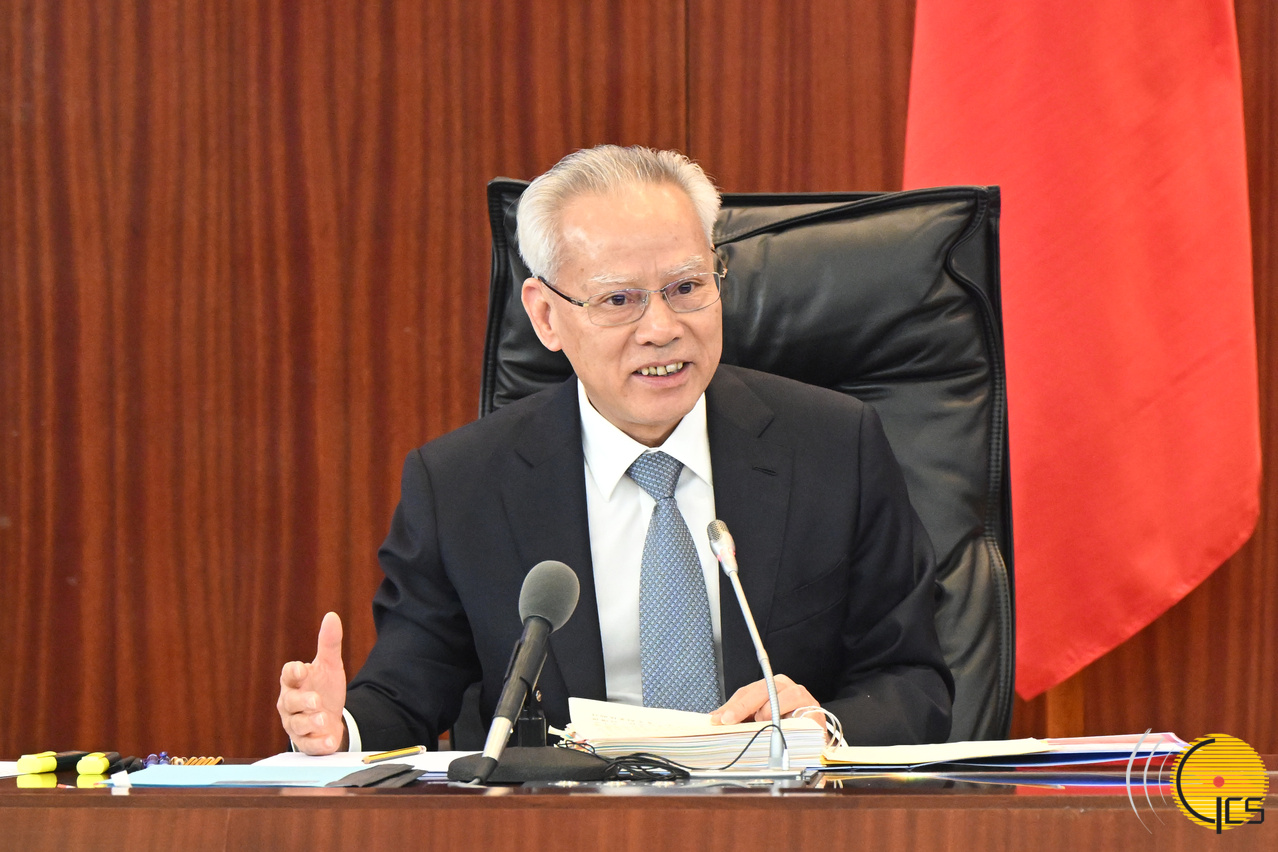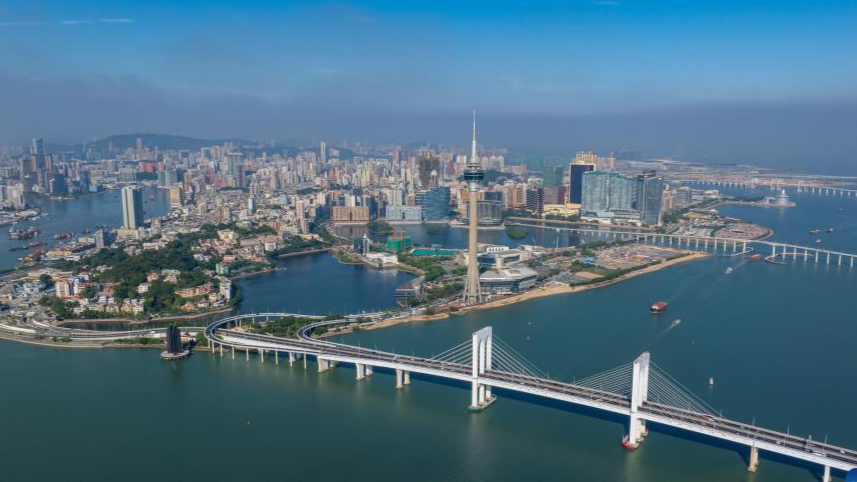
HONG KONG – Macao Chief Executive Sam Hou-fai has said the special administrative region could slip into a budget deficit if gaming revenues do not meet the target.
Pointing out that the fixed expenses of the SAR government are large, he said gaming revenues in the first quarter did not meet the expected average monthly target stated in the 2025 Fiscal Budget, according to a government statement.
“If subsequent gaming revenues still do not meet the target, the government will face a budget deficit,” Sam said during a question-and-answer session on his 2025 Policy Address at the Legislative Assembly on Tuesday afternoon.
As 80 percent of the government’s tax revenues come from the gaming industry, the government must respond prudently to various risks and challenges and make good use of the city’s unique advantages to promote appropriate economic diversification, he said.
READ MORE: Central govt pledges full support for Macao SAR development
During the session, he answered legislators’ questions on social issues ranging from a declining birth rate to care of the elderly, targeted assistance to disadvantaged groups, investment in educational resources, protection of employment for local residents, and youth policies.
The CE said the current-term Macao SAR government is adopting a multi-pronged approach to alleviate people’s hardships and improve livelihoods, creating quality living conditions.
Stressing that the SAR government attaches great importance to policies relating to the elderly and to the young, Sam said his government had always been concerned about the impact of ageing within the population, in relation to Macao's sustainable development.
The government will improve the efficiency of services for the elderly and effectively respond to related needs, through the provision of diversified services, he added.
Mentioning that the budget on regular subsidies for services for the elderly stood at 560 million patacas in 2024, accounting for approximately 33 percent of the budget spent on regular subsidies for social services in Macao, he said relevant departments are currently carrying out planning and preparation work for the next phase of the 10-Year Action Plan for Services for the Elderly, focusing on “Big Health”, smart technology, and an elderly-friendly and inclusive environment.

He also revealed that the Macao SAR government will strive to complete an assessment work related to the proposal for a dedicated consumer price index for the elderly.
Talking on the city’s low birth rate, the CE pointed out that the government will launch a childcare subsidy scheme to encourage parenthood, providing a subsidy of 1,500 patacas per month to cover children under the age of three born to Macao permanent residents.
More than 15,100 children are estimated to be covered by the scheme this year.
The 2025 Policy Address also mentions raising the birth allowance to 6,500 patacas, an increase of nearly 20 percent, the CE said, adding that a subsidy scheme on medically-assisted reproductive services has been launched.
ALSO READ: Macao to integrate more closely with Hengqin’s development
The SAR government has also improved childcare services, providing more than 240 million patacas in yearly-recurrent funding for subsidized childcare institutions. Support for disadvantaged families includes provision of 900 free daycare places plus fee reductions, and priority admission to daycare services, he added.
The government will make full use of public housing resources to provide support to families with children, said the CE.
Speaking on improving the city’s healthcare system, he said the government will increase the number of subsidized community outpatient clinic sessions to approximately 180,000, and the number of psychological treatment quotas to 10,000.

Collaboration between public, non-profit and private healthcare institutions will be strengthened to refer chronic disease patients from health centers to community clinics at non-profit healthcare institutions.
On education, the CE said the combined budgets of the Education and Youth Development Bureau and the Education Fund will be increased to a total of approximately 9.6 billion patacas this year.
The government will give priority to the development of free education, regulate the number of places and classes in each school, support financial measures for schools with disadvantaged pupils, and enhance the stability and adaptability of the education system, he said.
To develop new quality productive forces, the Macao government will put education, technology and talent training together for policymaking purposes, according to the CE.
The government will promote the development of smart education through "smart campuses", "smart teaching" and "artificial intelligence education", he added.
READ MORE: Macao SAR's GDP increases 8.8% YoY in 2024
Expressing concern over structural unemployment and job prospects of young graduates, he said the government will continue to introduce various employment support measures and services to assist residents in finding employment through multiple channels.
It will study the establishment of a comprehensive vocational training platform to respond to industry adjustments and allocate relevant resources in a targeted manner, he added.
The government will ensure that local residents are given priority in employment, he said, adding that the importation of non-resident workers is only to address the shortage of local manpower.


